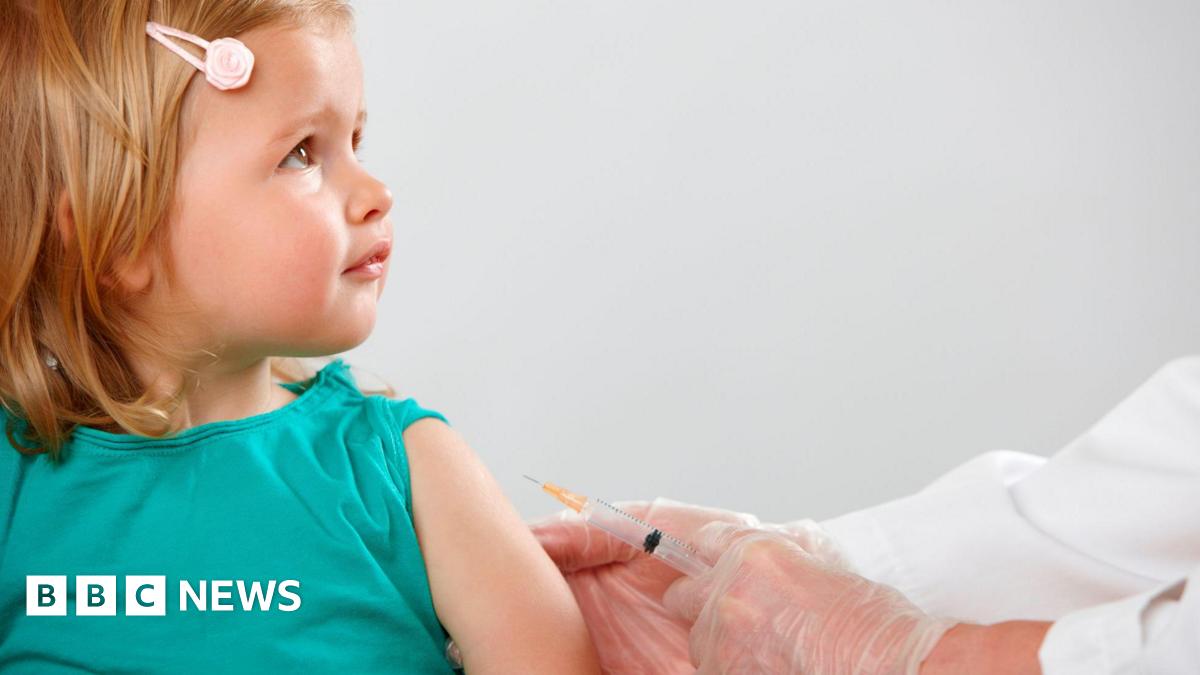On a crisp autumn morning in the heart of London, young parents gather in a community center for a weekly playgroup. Amid the laughter and chatter of children, a palpable tension simmers just below the surface. While the parents exchange tips on toddler tantrums and meal prep, one mother quietly reveals her fears about vaccinations. “I’ve heard so many conflicting things about vaccines,” she confides, “I just don’t know who to trust anymore.” This moment encapsulates a growing concern: since 2022, no childhood vaccine in the UK has reached the World Health Organisation’s target of 95% coverage, increasing the risk of outbreaks of diseases like measles.
Declining Vaccination Rates in the UK
In a report compiled over a year by the Royal College of Paediatrics and Child Health (RCPCH), experts deconstructed the decline in vaccination rates. Dr. Helen Stewart, officer for health improvement at RCPCH, expressed profound concern about this trend in a nation that prides itself on its health standards. “The steady decline in vaccination rates, particularly in a wealthy country like the UK, is extremely alarming,” said Dr. Stewart. What’s emerging is not merely vaccine hesitancy; it’s a complex web of barriers that many families face.
The Complex Web of Barriers
While confidence in vaccines remains relatively intact, the RCPCH report identified several systematic issues that inhibit vaccination access. “Many families genuinely want to protect their children but face hurdles that prevent them from doing so,” Dr. Stewart noted. Below are some of the most significant barriers identified:
- Difficulties getting through to book appointments at GP surgeries.
- Struggles with taking time off work for vaccinations.
- Limited transportation options or inadequate parking facilities at clinics.
- Inconsistent healthcare providers, leading to a lack of trust and continuity.
- A lack of direct communication with healthcare providers regarding vaccine details.
- The absence of timely reminders from GPs for upcoming vaccinations.
- Insufficient clarity about required vaccinations and their timelines.
This intricate network of obstacles raises troubling questions about the healthcare system’s capacity to serve diverse populations effectively. As Dr. Stewart pointed out, “When asked if their child is up to date with vaccinations, most parents respond with, ‘I think so,’ highlighting the absence of a clear system to monitor vaccine status.”
The Impact on Vulnerable Communities
One of the more troubling findings of the RCPCH report is the striking disparity in vaccination rates among different demographics. “Poorest families, certain ethnic minority groups, and migrant communities are much less likely to be vaccinated,” noted Dr. Ibrahim Ajayi, a public health researcher who specializes in health equity. “Inequalities that have always existed have been exacerbated since the pandemic.” The report cited a hypothetical study that showed vaccination rates among lower-income households plummeting to as low as 75%.
Trust Erosion and Inaccessible Resources
The erosion of trust and the absence of reliable resources can be traced back to the lack of health visitors, which has made it difficult for parents to discuss concerns openly. “Without someone to consult, parents can feel lost in a sea of information,” Dr. Ajayi elaborated. “Community health influences confidence, and without trusted messengers, accessible information becomes a challenge.”
Many parents express ambivalence toward vaccines not out of outright opposition but due to feelings of isolation and overwhelm. “A lack of clear guidance leaves them unsure about the vaccines their children need,” Dr. Stewart added. Some parents have also reported being overwhelmed by misinformation spread through social media, leading to confusion over vaccine safety and efficacy.
Improving Access and Building Trust
To combat the decline in vaccination rates, experts advocate for a multi-faceted approach that tackles both systemic barriers and informational deficits. Suggestions include:
- Implementing streamlined booking systems to improve appointment access.
- Offering flexible hours to accommodate working parents.
- Enhancing transportation options to clinics, which could include partnerships with ride-sharing services.
- Establishing continuity of care by ensuring families see the same healthcare provider.
- Providing better communication tools to facilitate questions and concerns from parents.
- Launching community outreach programs that focus on educating parents about the importance of vaccinations.
Efforts are already underway in some regions. Local health authorities are piloting initiatives that utilize community health workers to bridge the gap between families and healthcare systems. Preliminary surveys indicate that families involved in such programs show a marked increase in vaccination uptake.
Moving Forward: A Call to Action
As the UK grapples with these pressing health challenges, it becomes crucial for healthcare providers and policymakers to listen to families’ needs and empower them with trustworthy information. The RCPCH report serves as a clarion call to redress existing inequalities and improve access to vaccinations.
In the community center where the mothers gather, trust begins with conversations like the one overheard that autumn morning. To transform these discussions into action, the collective effort of healthcare systems, families, and community leaders is essential. Only by dismantling the barriers to vaccination can the UK hope to restore its health milestones and protect the future of its children.
Source: www.bbc.co.uk


